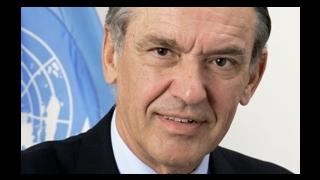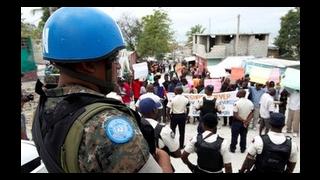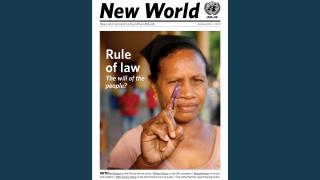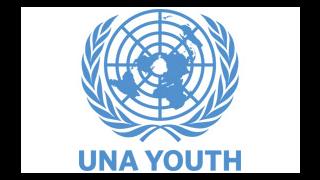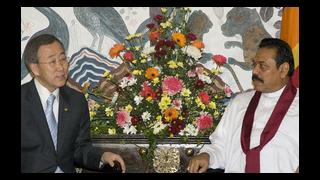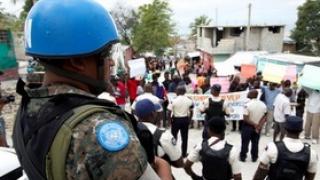
At its inception in 1945, the framers of the UN Charter created an international organisation entrusted with maintaining peace and security, protecting human rights and the rule of law, and promoting better living standards for the world’s poorest people. Throughout its history, the UN has operated in some of the most troubled regions in the world and under the most difficult of circumstances, where rule of law institutions are often weak or absent altogether. It was clear to member states from the outset that in order to work effectively – and, crucially, free from outside interference – the UN would require legal protection. Venturing into what was then uncharted territory, the General Assembly set out to establish the UN’s legal immunity from the national courts of host states.
The issue of UN accountability has long been regarded as a political hot potato. In recent years, cases have emerged involving UN personnel who have violated international and domestic law, including criminal law, as well as their duties under the UN’s Standards of Conduct. This has led to concerted action on perhaps the most widely-known category of cases – incidents of sexual abuse perpetrated by UN peacekeepers. Although peacekeeping troops still remain under the sole criminal jurisdiction of their sending states, the UN now has a comprehensive strategy for the prevention of sexual abuse by its personnel and the organisation reports that the number of allegations of this nature have more than halved since 2007.
An issue which has received far less attention, though of equal importance, is that of allegations made against not individuals but the UN as an institution, and the important questions of accountability which they pose.
In 1945 it was not possible to envisage just how far-reaching the UN’s work would become. Today, the organisation’s remit includes monitoring cyber security, tackling international terrorism and, in some cases, acting as an interim territorial administration, as it did in Timor-Leste and Kosovo from the late 1990s.
Meanwhile, there has also been a huge expansion in international human rights law. But, while these instruments set out in increasing detail states’ obligations to the individual, and individuals’ obligations to one another, few set out those of international organisations. Typically, only states can be parties to the core human rights treaties, such as the Convention Against Torture, but does that mean that an international organisation, like the UN, should not be bound by the laws that it promotes? Or should an international organisation be held to the same standards as a state?
This briefing describes the legal framework for the UN’s immunity, looking specifically at two recent instances where the UN has invoked this status.
Legal framework
The issue of immunity was first addressed in the UN Charter. Article 105 states:
1. The Organization shall enjoy in the territory of each of its Members such privileges and immunities as are necessary for the fulfilment of its purposes.
2. Representatives of the Members of the United Nations and officials of the Organization shall similarly enjoy such privileges and immunities as are necessary for the independent exercise of their functions in connexion with the Organization.
3. The General Assembly may make recommendations with a view to determining the details of the application of paragraphs 1 and 2 of this Article or may propose conventions to the Members of the United Nations for this purpose.
Under paragraph 3, the General Assembly adopted the Convention on Privileges and Immunities of the United Nations (hereafter ‘the Convention’), which endows the UN with “legal personality” – understood as the ability to enter into contracts and institute legal proceedings. On the issue of immunity, article 2 of the Convention states:
The United Nations, its property and assets wherever located and by whomsoever held, shall enjoy immunity from every form of legal process except insofar as in any particular case it has expressly waived its immunity.
Given the risks faced by the UN in the operation of its peacekeeping missions – where it is often situated in the middle of hostile forces – the UN’s status of immunity from all legal processes, as set out in the Convention, is also embedded within every status of forces agreement (SOFA). This is the document that sets out the legal relationship between the UN and the host state of every peacekeeping mission.
Ambiguities
There are, however, a number of ambiguities both within these definitions and in their practical implementation.
Scope:
First, there has been much disagreement over the scope of the UN’s immunity, arising from the apparent disparities between the Charter and the Convention:
• The Charter grants immunity when “necessary for the fulfilment of its purposes”, or what has come to be known as “functional immunity”.
• The Convention endows the UN with “immunity from every form of legal process”, unless expressly waived by the Secretary-General, widely interpreted as de facto “absolute immunity”.
Numerous judicial decisions on the matter have not provided any further clarification: cases that have required consideration of the UN’s institutional immunity have invoked both interpretations.
Access to justice:
The “absolute immunity” set out in article 2 of the Convention is later mitigated by article 8, section 29:
The United Nations shall make provisions for appropriate modes of settlement of: a. Disputes arising out of contracts or other disputes of a private law character to which the United Nations is a party; b. Disputes involving any official of the United Nations who by reason of his official position enjoys immunity, if immunity has not been waived by the Secretary-General.
This provision reflects the legal principle that all people should enjoy the right of access to justice, but in practice the UN’s immunity and exclusion from national courts has limited the options of individuals seeking redress. In the “Mothers of Srebrenica” case recently heard at the European Court of Human Rights, the Court considered whether the UN’s immunity in national courts was a violation of individuals’ right to justice and ruled that “international law does not support the position that a civil claim should override immunity from suit”.
Definition of private law:
Further difficulty arises with article 8, paragaph 29 of the Convention, which states that claims of a “private law character” attributable to the UN can be considered for settlement. These would typically include property damage, illness or injury, and may be pursued through the UN’s general third-party claims process. However, this usually then excludes from consideration any claim deemed to be of a “public nature”: those which, due to the wider political and policy issues they raise, may require a systemic response.
The UN as the state:
The issue becomes especially complicated in situations where the UN has acted as the interim administration of a territory. In such cases, despite assuming the role of state, the UN is still protected by its immunity status. It has been argued that upon assuming this role, even temporarily, the UN should be subject to the same restraints and legal obligations of any other state. Furthermore, the rationale for the immunity afforded by the Convention was largely to seek protection for the UN from the interference of a host state. This argument is clearly undermined when the state is the UN itself.
Below are two examples of where the UN has invoked its immunity and how the organisation has responded to subsequent calls for accountability.
Examples
Haiti
The United Nations Stabilization Mission in Haiti (MINUSTAH) was first established in 2004 when 20,000 peacekeeping troops were deployed to stabilise the country after years of armed conflict. In 2010, a catastrophic earthquake killed over 220,000 people, including 102 UN personnel. The devastation exacerbated Haiti’s already ailing infrastructure and limited state capacity, requiring emergency relief and long-term reconstruction.
Ten months after the earthquake, a cholera epidemic broke out, which has killed over 8,000 people. Until then, the country had been free of cholera for almost a century. Blame for the outbreak centred on a MINUSTAH site where peacekeepers from Nepal, which had recently experienced its own outbreak of the disease, were based.
In response to the epidemic, the UN Secretary- General commissioned an Independent Panel of Experts to determine the source of the outbreak. The Panel’s report at the time asserted that it was due to the contamination of a major water supply with a South Asian strain of the cholera virus, as well as the dire state of Haitian sanitation systems, and that the outbreak “was not the fault of, or deliberate action of, a group or individual”. In July 2013, the Panel released another report which stated that although “the most likely source of introduction of cholera into Haiti” was the MINUSTAH base, “based on the evidence we feel that the introduction of cholera was an accidental and unfortunate confluence of events”.
The Institute for Justice & Democracy in Haiti (IJDH), a US-based NGO, filed claims with the UN in 2011 on behalf of 5,000 victims, blaming the organisation for failing to appropriately screen the Nepalese peacekeepers for cholera prior to deployment and not providing adequate sanitation facilities at the base. IJDH has called for the UN to establish new water and sanitation systems in Haiti, provide compensation for the victims and issue a public apology.
The UN Under-Secretary-General for Legal Affairs responded to the claims in February 2013 and emphasised the organisation’s efforts to tackle the virus, citing $118m spent on treatment and prevention and the launch in December 2012 of the Secretary-General’s Initiative for the Elimination of Cholera in Haiti, to which the UN has committed a further $23.5m. The claims, however, were considered not to be receivable under article 8, section 29 of the Convention, as they were not considered of a private law nature and would “necessarily include a review of political and policy matters”.
IJDH has since requested that the UN supply further clarification as to why the claims were not considered of a private law nature and to provide the complainants with “appropriate modes of settlement” for their dispute. Though the UN’s SOFA with the Haitian government includes the standard requirement of a Standing Claims Commission to settle third-party disputes, this has never been established in Haiti, nor in any other mission.
Kosovo
In the aftermath of the Kosovo War in 1999, Security Council resolution 1244 authorised a UN interim administration in Kosovo with the aim of establishing security, reconstructing Kosovo’s infrastructure and promoting human rights and self-governance.
In accordance with this resolution, the Special Representative of the Secretary-General (SRSG) was granted broad legislative, judicial and executive powers, and the UN Mission in Kosovo (UNMIK) was granted immunity “from any legal process”. In assuming the role of the state, the UN had significant control over the civilian population. Tensions surfaced with accusations that the SRSG used executive orders to conduct arbitrary detention and other human rights abuses. In light of these accusations, and under pressure from the Council of Europe, UNMIK established the Human Rights Advisory Panel in 2006.
The Panel (which is still in operation) is mandated to consider individuals’ complaints of human rights violations committed by UNMIK since 2005, though this was not extended to allegations against the NATO-led Kosovo Force. The Panel’s structure reflects that of the UN’s Human Rights Treaty Bodies: three independent experts (one of whom, Professor Christine Chinkin, is a UNA-UK Policy Advisory Group member) meet to consider the complaints and submit advisory (non-binding) recommendations to the SRSG. In its considerations, the Panel can call upon a wide body of human rights law, and is currently the only accountability mechanism dealing with allegations of human rights violations committed by or attributable to a UN field mission.
To date, the Panel has closed 257 of the 527 cases it received, and found human rights violations in 88 cases. In its opinion on case ‘S.C., 02/09’, the Panel found that there was a human rights violation committed by UNMIK due to the “ineffectiveness of its investigation into the abduction and killing of the complainants’ relatives”. The Panel recommended UNMIK provide adequate compensation to the complainants and publicly apologise.
One of the weaknesses of the Panel, however, is the advisory nature of its opinions. It is down to the discretion of the SRSG as to whether recommendations are acted upon. In the case of ‘S.C., 02/09’, the SRSG issued a statement expressing regret over the violations, but was unclear on the issue of compensation. UNMIK’s previous position has been stated as “United Nations General Assembly instructions on compensations do not permit the United Nations Organization and its missions to pay compensation other than for material damage or physical harm. Consequently, UNMIK is not in a position to pay any compensation for human rights violations that may have occurred in these matters”. As such, no compensation has yet been awarded.
The Panel’s work continues to make a valuable contribution towards furthering our understanding of the applicability of international law in relation to international organisations. Given the likelihood that the UN will continue to operate in extremely complex situations, and the possibility it could again act as an interim administration, it is vital we look to possible future models of accountability. Some look to an adapted version of the Panel which could be replicated elsewhere in the UN system, or even an independent tribunal mechanism, empowered to make binding decisions and award compensation.
Clearly there is still a long way to go for the UN to address these issues. Lessons may be learnt, but perhaps not as quickly or as transparently as many would hope. Almost 70 years on from its creation, however, few would disagree that the organisation and its work still necessitates legal protection. Given its role as the standard bearer of international law, the UN must do much more to balance this necessity with individuals’ right to justice.
Photo: © UN Photo/Logan Abassi. A UN peacekeeper provides security as a group of approximately 40 protestors gathers outside the base of the UN Stabilization Mission in Haiti.






